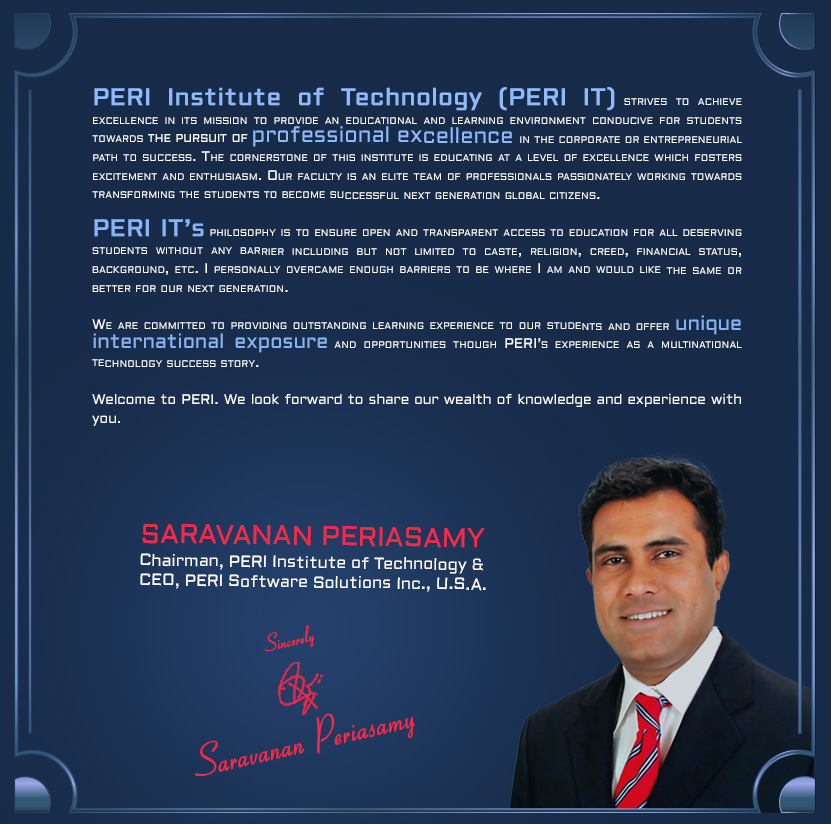PROGRAM EDUCATIONAL OBJECTIVES (PEOs)
Graduates can
- Demonstrate technical competence with analytical and critical thinking to understand and meet the diversified requirements of industry, academia and research.
- Exhibit technical leadership, team skills and entrepreneurship skills to provide business solutions to real world problems.
- Work in multi-disciplinary industries with social and environmental responsibility, work ethics and adaptability to address complex engineering and social problems
- Pursue lifelong learning, use cutting edge technologies and involve in applied research to design optimal solutions.
PROGRAM OUTCOMES (POs)
- Engineering knowledge: Apply the knowledge of mathematics, science, engineering fundamentals, and an engineering specialization to the solution of complex engineering problems.
- Problem analysis: Identify, formulate, review research literature, and analyze complex engineering problems reaching substantiated conclusions using first principles of mathematics, natural sciences, and engineering sciences.
- Design/development of solutions: Design solutions for complex engineering problems and design system components or processes that meet the specified needs with appropriate consideration for the public health and safety, and the cultural, societal, and environmental considerations.
- Conduct investigations of complex problems: Use research-based knowledge and research methods including design of experiments, analysis and interpretation of data, and synthesis of the information to provide valid conclusions.
- Modern tool usage: Create, select, and apply appropriate techniques, resources, and modern engineering and IT tools including prediction and modeling to complex engineering activities with an understanding of the limitations.
- The engineer and society: Apply reasoning informed by the contextual knowledge to assess societal, health, safety, legal and cultural issues and the consequent responsibilities relevant to the professional engineering practice.
- Environment and sustainability: Understand the impact of the professional engineering
solutions in societal and environmental contexts, and demonstrate the knowledge of, and need for sustainable development
- Ethics:Apply ethical principles and commit to professional ethics and responsibilities and norms of the engineering practice.
- Individual and team work:Function effectively as an individual, and as a member or leader in diverse teams, and in multidisciplinary settings.
- Communication: Communicate effectively on complex engineering activities with the engineering community and with society at large, such as, being able to comprehend and write effective reports and design documentation, make effective presentations, and give and receive clear instructions.
- Project management and finance:Demonstrate knowledge and understanding of the engineering and management principles and apply these to one’s own work, as a member and leader in a team, to manage projects and in multidisciplinary environments.
- Life-long learning:Recognize the need for, and have the preparation and ability to engage in independent and life-long learning in the broadest context of technological change.
PROGRAM SPECIFIC OUTCOMES (PSOs)
On successful completion of the Computer Science and Business Systems programme, the Graduates shall exhibit the following:
Graduates should be able to:
- Have proficiency in programming skills to design, develop and apply appropriate techniques, to solve complex engineering problems.
- Have knowledge to build, automate and manage business solutions using cutting edge technologies.
- Have excitement towards research in applied computer technologies.














